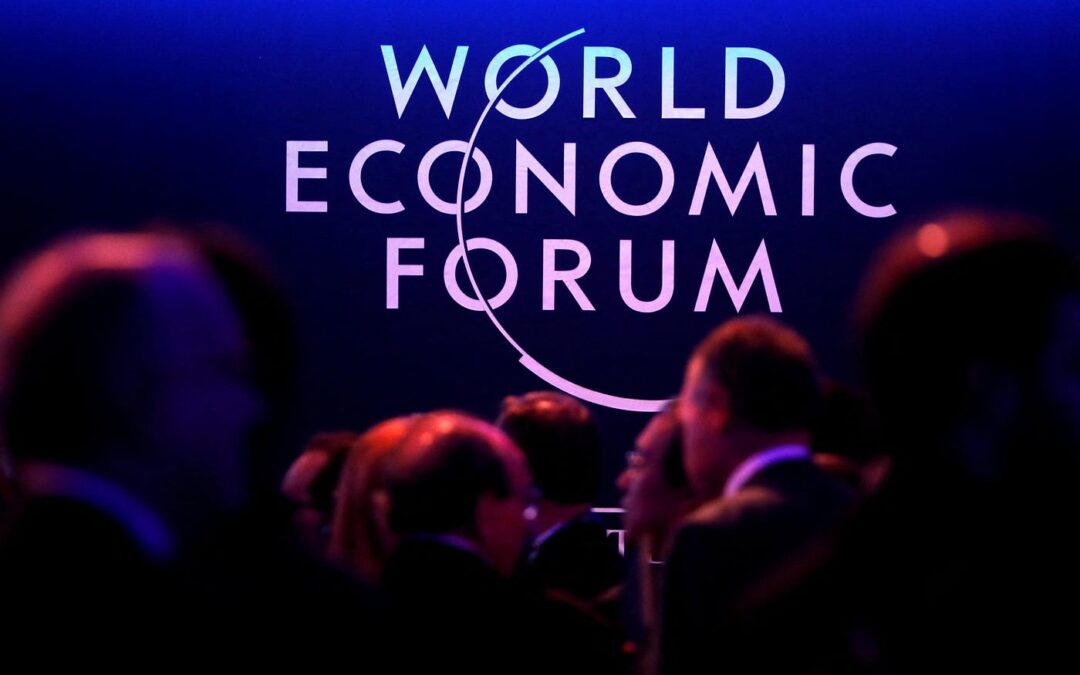On a short-term horizon of two years, the report identified ‘misinformation and disinformation’ as the biggest risk, followed by extreme weather events, societal polarisation, cyber insecurity and inter-state armed conflict in the top five
LONDON:
With close to 300 crore people expected to head to elections across countries including India and the US in two years, misinformation and societal polarisation have emerged among the biggest immediate risks before the world, a global study showed on Wednesday.
In the case of India alone, ‘misinformation and disinformation’ poses the top-most threat in the next two years, the World Economic Forum (WEF) said in its annual ‘Global Risks Report’.
It is followed by infectious diseases, illicit economic activity, income inequality and labour shortage among the five biggest short-term risks.
On a longer-term horizon of ten years, the biggest global risk would be from extreme weather events.
The report warned of a global risk landscape in which progress in human development is being chipped away slowly, leaving states and individuals vulnerable to new and resurgent risks.
“Against a backdrop of systemic shifts in global power dynamics, climate, technology and demographics, global risks are stretching the world’s adaptative capacity to its limit,” the WEF said.
The report, released ahead of the WEF’s five-day annual meeting in Davos beginning January 15, argued that cooperation on urgent global issues could be in increasingly short supply, requiring new approaches to addressing risks.
“Two-thirds of global experts anticipate a multipolar or fragmented order to take shape over the next decade, in which middle and great powers contest and set – but also enforce – new rules and norms,” it said.
The report, produced in partnership with Zurich Insurance Group and Marsh McLennan, has taken into account the views of over 1,400 global risks experts, policy-makers and industry leaders surveyed in September 2023.
Results highlight a predominantly negative outlook for the world in the short term that is expected to worsen over the long term. While 30 per cent of global experts expect an elevated chance of global catastrophes in the next two years, nearly two thirds expect this in the next 10 years.
On a short-term horizon of two years, the report identified ‘misinformation and disinformation’ as the biggest risk, followed by extreme weather events, societal polarisation, cyber insecurity and inter-state armed conflict in the top five.
In the long term (ten-year period), extreme weather events emerged as the biggest risk, followed by critical changes to earth systems, biodiversity loss and ecosystem collapse, natural resource shortages and ‘misinformation and disinformation’ in the top five.
Emerging as the most severe global risk anticipated over the next two years, foreign and domestic actors alike will leverage misinformation and disinformation to further widen societal and political divides, the report said.
“As close to three billion people are expected to head to the electoral polls across several economies – including Bangladesh, India, Indonesia, Mexico, Pakistan, the United Kingdom and the United States – over the next two years, the widespread use of misinformation and disinformation, and tools to disseminate it, may undermine the legitimacy of newly elected governments.
“Resulting unrest could range from violent protests and hate crimes to civil confrontation and terrorism,” it added.
However, as truth is undermined, the risk of domestic propaganda and censorship will also rise in turn, and in response to mis- and disinformation, governments could be increasingly empowered to control information based on what they determine to be “true”, the WEF report said.
“Freedoms relating to the internet, press and access to wider sources of information that are already in decline risk descending into broader repression of information flows across a wider set of countries,” it added.
False and misleading information supercharged with cutting-edge artificial intelligence that threatens to erode democracy and polarize society is the top immediate risk to the global economy, it said in a report Wednesday.
In its latest Global Risks Report, the organization also said an array of environmental risks pose the biggest threats in the longer term.
The report was released ahead of the annual elite gathering of CEOs and world leaders in the Swiss ski resort town of Davos and is based on a survey of nearly 1,500 experts, industry leaders and policymakers.
The report listed misinformation and disinformation as the most severe risk over the next two years, highlighting how rapid advances in technology also are creating new problems or making existing ones worse.
The authors worry that the boom in generative AI chatbots like ChatGPT means that creating sophisticated synthetic content that can be used to manipulate groups of people won’t be limited any longer to those with specialized skills.
AI is set to be a hot topic next week at the Davos meetings, which are expected to be attended by tech company bosses including OpenAI CEO Sam Altman, Microsoft CEO Satya Nadella and AI industry players like Meta’s chief AI scientist, Yann LeCun.
AI-powered misinformation and disinformation is emerging as a risk just as a billions of people in a slew of countries, including large economies like the United States, Britain, Indonesia, India, Mexico, and Pakistan, are set to head to the polls this year and next, the report said.
“You can leverage AI to do deepfakes and to really impact large groups, which really drives misinformation,” said Carolina Klint, a risk management leader at Marsh, whose parent company Marsh McLennan co-authored the report with Zurich Insurance Group.
“Societies could become further polarized” as people find it harder to verify facts, she said. Fake information also could be used to fuel questions about the legitimacy of elected governments, “which means that democratic processes could be eroded, and it would also drive societal polarization even further,” Klint said.
AP

